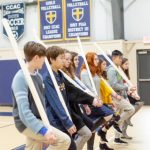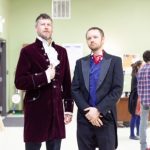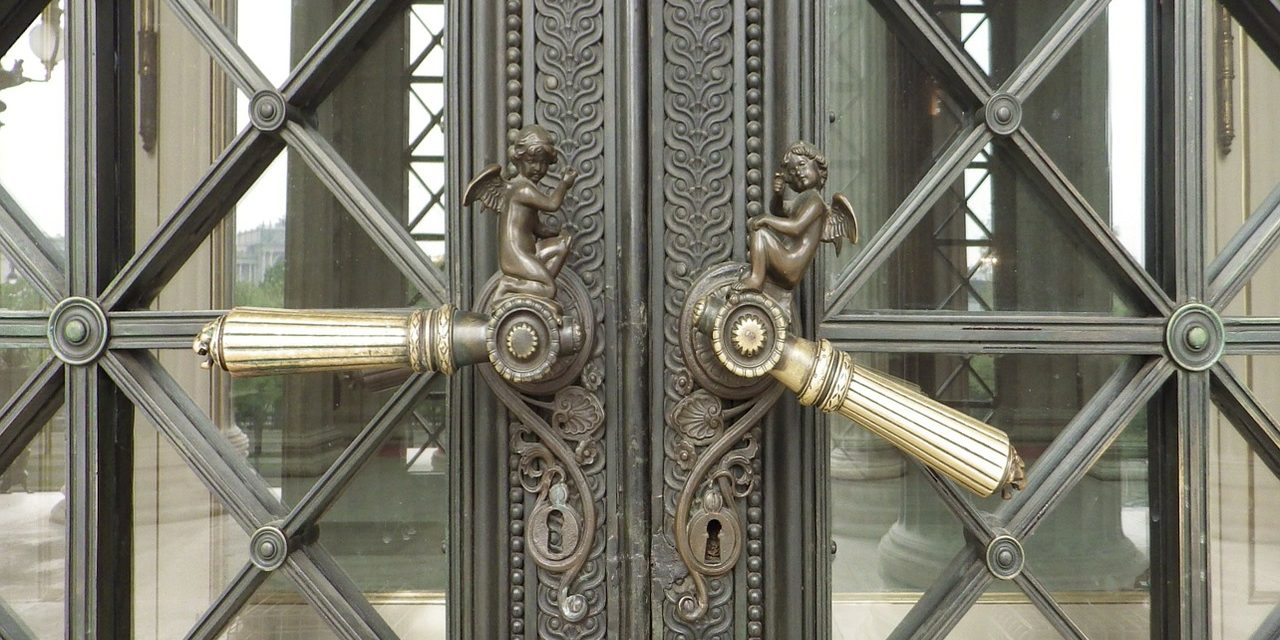By John Hayward
The Importance of Small Moments
At the age of 32, I am 23 years into my involvement in classical Christian education. My roles have included student, alumnus, intern, coop tutor, random part-time teacher/aide/”could-you-paint-that” guy, upper school humanities instructor, substitute teacher, upper school dean, and prospective parent. Many of my dearest friends are alumni from ACCS schools around the country. My education prompts me to proclaim with the Psalmist as he says, “You have multiplied, O LORD my God, your wondrous deeds and your thoughts toward us; none can compare with you! I will proclaim and tell of them, yet they are more than can be told” (Psalm 40:5).
Through it all, there has been one orienting theme—my teachers always had goals for me beyond what they could see and measure. They did not merely want me to pass a class, progress to the next grade, graduate, succeed at college and become an excellent employee. All of those are true accomplishments, but I am blessed that my teachers always kept a different person in view than the student in front of them.
To paraphrase C. S. Lewis from The Weight of Glory, my teachers knew that they had no ordinary students; there were no mere mortals in their classrooms. It is not a casual thing to be human. My teachers were working towards shaping who I would be ten years after college. They were concerned with what kind of citizen, church member, father and husband I would be. By aiming for a man beyond the boy they could see, my teachers demonstrated their understanding that theirs was an eternal goal.
Today, as a dean, I walk the hallways from a new angle. My most strategic investment of time is in teachers because I know that their love of God and love of neighbor, their convictions and their character, their knowledge and their skills, are what can make or break the education’s potential impact.
The small moments matter for good. The little words of shepherding, the prayers, the moments of modeled joy, the brief personal reflections on the goodness of God, the interactions with colleagues that students hear, all of these are seeds scattered in the hope that new life can spring up in all sorts of places. I am living proof. One such small side comment during my 11th grade year from Ty Fischer, my then teacher/headmaster and now friend, mentor, and colleague, makes it into my testimony of God’s saving work in my life every time I tell it.
The small moments matter for evil, too. In my own experience, small moments of sarcastic criticism have influenced me to despise my parents, my church, or people at other schools. Small deviations from Scripture have put me on the path to error in my Christian walk and my academic pursuits.
To shape the small moments at their schools, my charge to classical families is to love teachers through prayer, words that build up and fit the occasion (Eph 4:29), words that make sanctification spark as iron sharpens iron. I am grateful for the opportunity to invite you to “magnify the Lord with me” (Ps. 34:3) as I have rehearsed these blessings.
I pray that it orients each of us to pray for our students and teachers. May our students be blessed in the same way I was blessed at like-minded schools around the world, and may parents and teachers alike join Paul in saying in Colossians 1:29, “For this [presenting people mature in Christ] I toil, struggling with all his energy that he powerfully works within me.” ✤
THE CONGRESS OF VIENNA: TEACHERS BRAINSTORM BEYOND THE CLASSROOM
Each year at Covenant we cancel upper school classes for a week for students to learn beyond the classroom. The Congress of Vienna simulation came about because we wanted students to have a chance to learn negotiation, debate, politics, and strategic thinking. So, we basically turned the upper school into a live action board game.
Vienna simulation came about because we wanted students to have a chance to learn negotiation, debate, politics, and strategic thinking. So, we basically turned the upper school into a live action board game.
 On top of the complex political issues (and flamboyant characters) involved, we included 19th-century military drills and formal dancing. Each delegation was given a set of goals that would make them naturally work for and against different teams. In addition to formal negotiations, spying, and displays of military and dancing prowess, we set up a formal assembly where students needed to learn some of Robert’s Rules, making agendas and passing motions.
On top of the complex political issues (and flamboyant characters) involved, we included 19th-century military drills and formal dancing. Each delegation was given a set of goals that would make them naturally work for and against different teams. In addition to formal negotiations, spying, and displays of military and dancing prowess, we set up a formal assembly where students needed to learn some of Robert’s Rules, making agendas and passing motions.
All of this affected their standing for the last day when we surprised them with Napoleon’s escape and war broke out again. This meant the last day was full of competitions, including a custom made board game run by Napoleon himself. Throughout the week we also had various speakers come in and talk about engaging in the political process, conflict resolution, being a faithful Christian politician, diplomatic etiquette, and how to march and dance.
out again. This meant the last day was full of competitions, including a custom made board game run by Napoleon himself. Throughout the week we also had various speakers come in and talk about engaging in the political process, conflict resolution, being a faithful Christian politician, diplomatic etiquette, and how to march and dance.
 John Hayward, Upper School Dean, Covenant Christian Academy, Harrisburg, PA
John Hayward, Upper School Dean, Covenant Christian Academy, Harrisburg, PA










